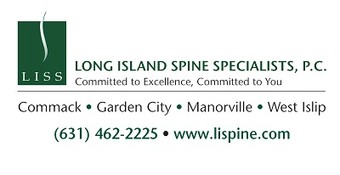|
|

|
« Back
Degenerative and Herniated Discs: Are They Inherited?
|
Posted on: 11/30/1999
|
We know now from many studies done over the years that back pain is a common problem among adults the world over. Disc degeneration and herniation seem to be the most common diagnosis among back pain sufferers. Efforts to understand disc degeneration and pain associated with the problem are ongoing.
Many people have disc problems and never know it. They have no symptoms of back or leg pain.There is no numbness in the back, buttock, or leg and no change in reflexes or weakness that are commonly reported by patients with symptomatic disease. Is there a reason why some patients develop symptoms and others do not?
In this study, researchers use information collected in a genealogical database from the University of Utah to determine the influence of heredity on symptomatic lumbar disc disease. Genetics has long been suspected in this disease process, but no one has been able to pinpoint the specifics.
This study may be the first step in getting closer to our understanding of inheritance as a possible etiology (causative factor). Over a million patients are included in this database. The software makes it possible to search for patients with lumbar degenerative disc disease within the same family.
Results of treatment were compared for patients in the family clusters against a very similar group of patients (same diagnosis, age, gender, socioeconomic background) who did not have other family members with the same back problems.
Two statistical tools used in this study included the estimation of relative risks (RR) in relatives and the Genealogical Index of Familiality (GIF). The results showed a definite genetic link to lumbar degenerative disc disease in symptomatic patients. And because the condition was present in the first- and third-degree relatives, we know it's not just a matter of shared environment or exposure.
For clarity, we should define the degrees. First-degree refers to siblings (brothers and sisters). Second-degree includes relatives in a different generation such as parents, uncles, aunts, grandparents (or grandchildren). Third-degree relatives can be within the same generation such as first cousins. In fact, first-degree and third-degree relatives are usually in the same generation, whereas, second-degree is a different generation.
Twin studies have previously shown the impact of genetics on lumbar degenerative disc disease and disc herniation. Other studies have shown that people who have a family history of disc herniations have more severe disc herniations themselves. Now this study adds support for a familial predisposition to lumbar disc disease.
The next step is to find out exactly what is the genetic link or abnormality. Is it in the cellular material that makes up the discs? Is there some miscoding on a particular gene that alters the biochemistry of the disc? Perhaps there is a genetic abnormality that changes the collagen protein in the disc.
The authors conclude that lumbar disc disease isn't always caused by heredity but in some people, there is a definite inherited aspect. By studying genes that might be involved, it may someday be possible to prevent disc disease before it ever develops or becomes symptomatic (painful).
|
References:
Alpesh A. Patel, MD, et al. Evidence for an Inherited Predisposition to Lumbar Disc Disease. In The Journal of Bone and Joint Disease. February 2, 2011. Vol. 93A. No. 3. Pp. 225-229.
|
|
|
« Back
|
|
|
|
*Disclaimer:*The information contained herein is compiled from a variety of sources. It may not be complete or timely. It does not cover all diseases, physical conditions, ailments or treatments. The information should NOT be used in place of visit with your healthcare provider, nor should you disregard the advice of your health care provider because of any information you read in this topic. |
 | All content provided by eORTHOPOD® is a registered trademark of Mosaic Medical Group, L.L.C.. Content is the sole property of Mosaic Medical Group, LLC and used herein by permission. |
|
